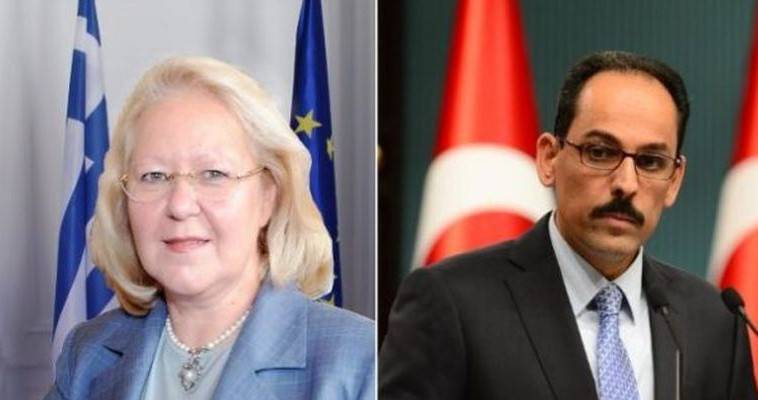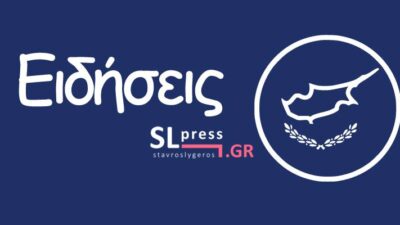Alexandros Tarkas: On the path to exploratory talks – Intra-government squabbles concerning the agenda
24/12/2020
Consultations verging on oriental haggling, with vague declarations of intent and sudden reversals of commitments, are being held between Greece, Turkey, the USA, and Germany to resume exploratory talks, while the fragile balances between the PM’s Office and the Foreign Ministry are now common knowledge.
Discussions began several days before the 10-11 December European Council, in which the foreign minister directly told parliament that “the government and the prime minister knew where things were going”, meaning no sanctions. Nikos Dendias, refuting the assurances of the government spokesman, referred to the (unpublished) timely warning of the German presidency to the PM’s Office, that there was not the slightest possibility of imposing sectoral sanctions other than individual restrictive measures.
At the same time, Berlin linked the departure of Oruc Reis with the rapid start of exploratory contacts, receiving – but only initially – the negative reaction of Athens. Gradually, however, the PM’s Office changed its mind, slipping into accepting scheduling of the start of the exploratory talks in a short time.
It is unclear whether the change of heart by the Prime Minister is a logical continuation of his milder personal strategy towards Ankara that has been in force since the summer, or a choice dictated by the European Council’s attempt to avoid a debacle. This is because, in addition to the pressure of German diplomacy, other member states (even France) had fallen into Turkey’s trap. They believed Ankara’s allegations, that it had allegedly consented to the repetition of the exploratory talks and that answers from Athens were pending.
In this context, three most authoritative sources confirm that the Prime Minister’s diplomatic adviser, Ambassador Eleni Sourani, did indeed contact Erdogan’s trusted adviser Ibrahim Kalin to repeat the exploratory talks. Ibrahim Kalin very improperly did not answer, while there were additional contacts (again fruitless) with the Turkish side, before the Summit.
Exploratory talks at the initiative of Berlin
Discussions on the rapid resumption of exploratory work have been going on almost daily since the day after the European Council. Like last summer, the initiative belongs to Berlin, while Washington remains in a supportive role. This practice proved to be a multiple failure last August (since no talks took place, no tension was eased, and NATO cohesion was not achieved). But now it’s inevitable for the State Department due to the transition period until the inauguration of the President-elect Joe Biden.
However, a common denominator of the American discreet proddings and the German unbearable pressures is to announce in principle an agreement to repeat the exploratory talks as soon as possible and to start them at the end of January. In this way, the Greek demand for mediation for a sufficient period of time, without Turkish provocations, is seemingly satisfied.
The internal concerns in the government have to do with, apart from time, the content of the investigations. Theoretically, the competent associates of the Prime Minister and the Foreign Minister agree that the contacts with Ankara should be repeated from the point where they were interrupted, with Turkish responsibility, in the summer of 2016.
Government vacillations
In practice, however, two lines are being drawn within the government. The PM’s Office believes there is no danger if – under the Surani-Kalin agreement in Berlin last July – there is an expansion of the agenda, parallel discussions on confidence-building measures in the military sector, and a resumption of political consultations (at the level of secretaries-general) on a range of issues. Also, the so-called “foreign factor” chooses ambiguous formulations, putting in the same fate the point of 2016 and the Surani-Kalin agreement!
Germany and the USA, obviously aware of the government’s hesitations, are pushing for a risky compromise, on the one hand by launching exploratory talks without announcing their agenda (exactly according to Turkish reasoning), and on the other by suspending research in the Aegean and the Mediterranean. Such a solution does not secure Greek interests. Because, if the talks go ahead Greek sovereign rights will be violated. If they are interrupted, a bargaining chip will have been created and subsequent developments will be out of control.
At the same time, the enlarged talks will mean the automatic removal of the obstacles that Athens invokes for the continuation of the contacts in the NATO Military Committee. Atlantic Alliance Secretary-General Jens Stoltenberg and officials want to extend the October 1 “disengagement and accident prevention mechanism” with additional protocols that do not guarantee respect for international law and non-interference in bilateral issues between Greece and Turkey.





